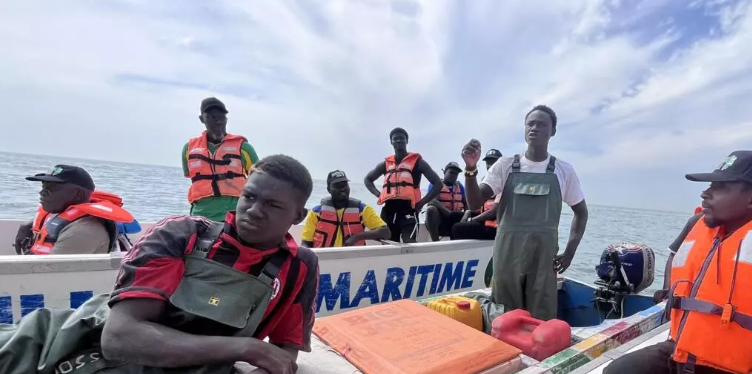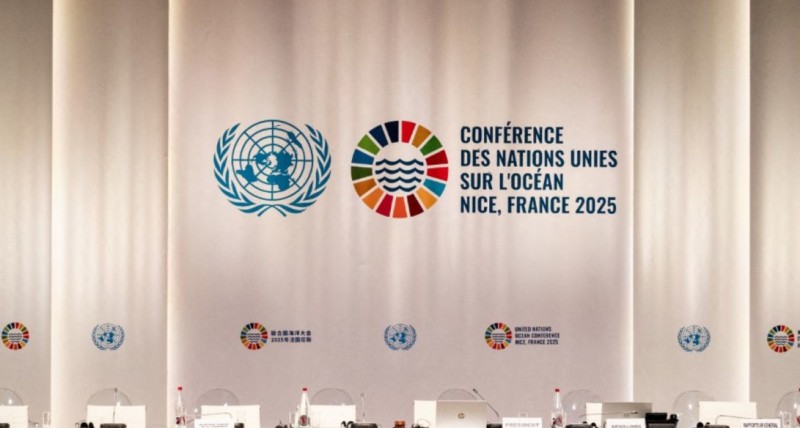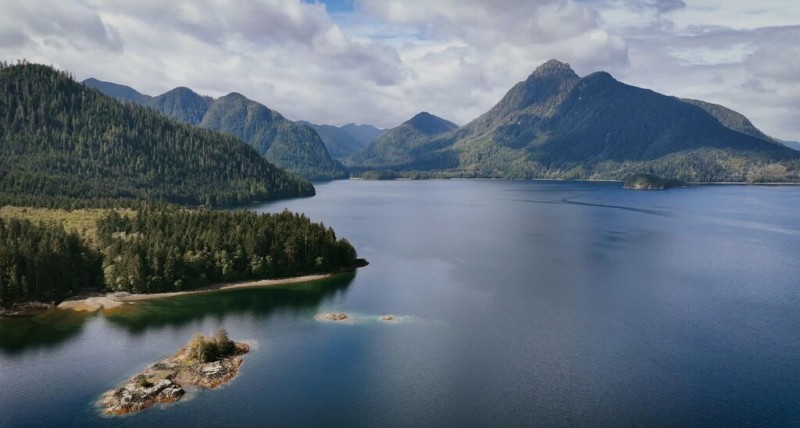In Senegal, protecting fishery resources is an urgent priority. Faced with overfishing, local brigades known as CLPA – Local Councils for Artisanal Fishing are tasked with monitoring the waters where the state is absent. These are volunteer fishers and sector actors who spot and track illegal practices.
To promote proper conduct, Greenpeace organized a highly eventful at-sea exercise on November 18 off Saly. A pirogue is surrounded, its nets encircled. A forty-year-old fisherman is caught in the act: he has just hauled in a large quantity of juvenile sardinella, too young to be captured.
« This is zero tolerance, » exclaims Kaly Ba, head of the “Ocean” campaign at Greenpeace Africa. « They are shooting themselves in the foot by exterminating the resource to supply a fishmeal industry that doesn’t even benefit African communities. »
According to Senegal’s maritime fishing code, the fisher’s gear and catch should be confiscated, and a fine of at least 200,000 CFA francs imposed. But the operation does not go smoothly.
« The fisherman is pouring fuel on his pirogue and threatens to burn it if we approach! »
After several minutes of pursuit, the fisherman becomes too threatening. Three minors are on board the intercepted pirogue. The operation becomes risky, and he escapes immediate sanctions. Evidence of the infraction is sent to the relevant authorities onshore.
“The state must step up”
« At Greenpeace, this is unacceptable, » says Kaly Ba. « We want sanctions. If sanctions are enforced, these actions won’t be repeated. Look at the size of the nets—they’re designed to catch only juvenile fish, preventing the species from regenerating. »
Ibrahima Mar, coordinator of the national network of CLPA, knows these episodes of resistance well. Living in the same community as those he must sanction, he believes local actors alone cannot exercise authority.
« We live together, we are families. Today, the state, which is neutral, without friends or relatives, must step up! If we were supported by the military, it would be more effective, » he insists.
At the end of the operation, the mission leader, Pape Moustapha Ngom, boosts the morale of his team. An agent of the Directorate for the Protection and Surveillance of Fisheries (DPSP), he emphasizes:
« You have to engage with the actor, discuss with them, bring them to reason. It’s not easy, but we must remain the sharks. I really want to thank you, » he adds to applause.
A year ago, the new authorities promised to publish a verified list of boats authorized to fish in Senegal—one of the measures aimed at protecting a fisheries sector threatened by declining stocks, which provides livelihoods for 17% of the working population.
Source: RFI




